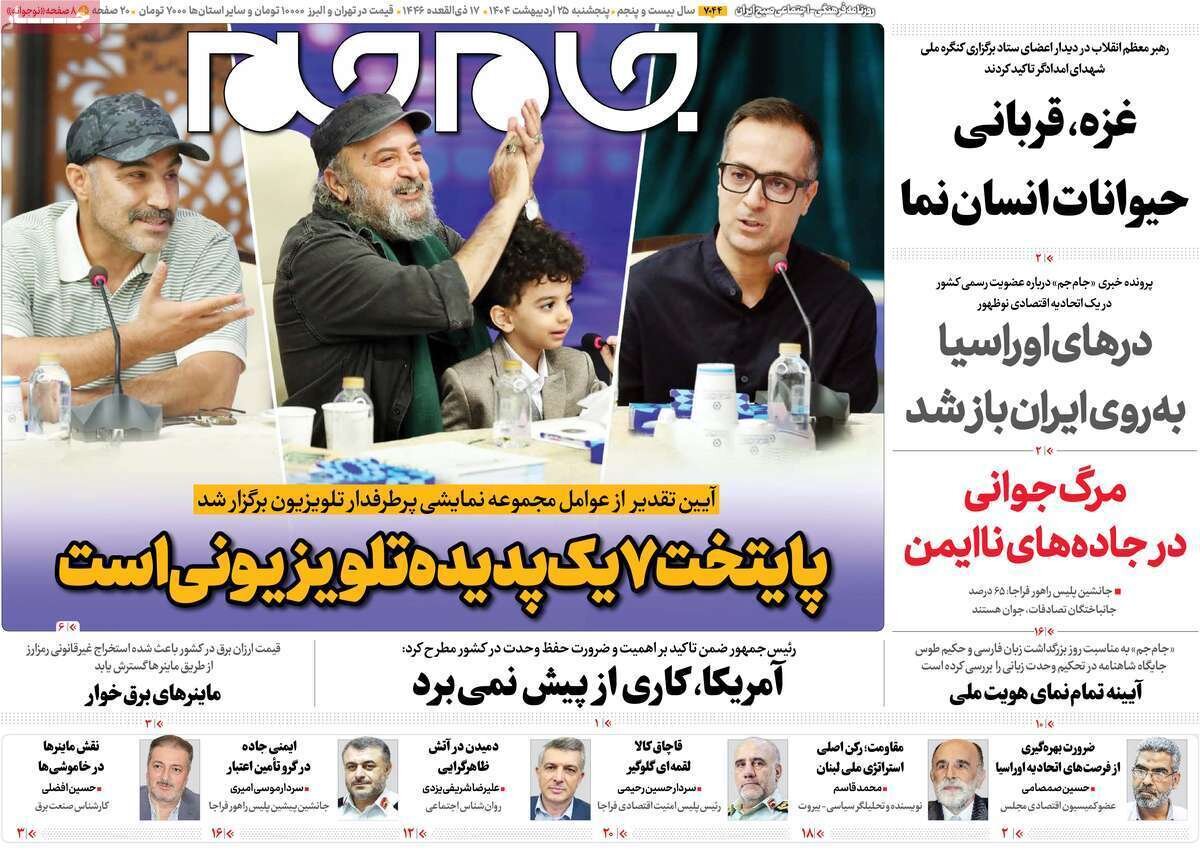The doors of Eurasia opened to Iran

TEHRAN - Jam-e-Jam wrote about Iran’s free trade agreement with the Eurasian Economic Union: This agreement is a document beyond an economic contract; it is a geo-economic turning point that can take Iran from the periphery of the global economy to the center of a dynamic network of regional trade.
The world is entering a new order. Regional economic alliances, from Southeast Asia to Eurasia, are redefining new rules for trade and power. The Islamic Republic of Iran, which is at the heart of the most important trade routes, including the North-South and East-West corridors, now has an unprecedented opportunity to redefine its position with the activation of permanent membership and the implementation of tariff rules in the Eurasian Free Trade Agreement. If Iran can accelerate the completion of joint infrastructure projects, such as the North-South Corridor with Eurasian members such as Russia, it can consolidate its position as a transit hub. But this will require political coordination and overcoming diplomatic obstacles, which will be challenging given the geopolitical complexities of the region.
Etemad: A step towards leaving the FATF blacklist
Etemad discussed the approval of Palermo by the Expediency Council in an interview with Mohammad Sadr, a former deputy foreign minister and a current member of the council. He said: Amidst the news of Trump’s trip to the region and in a situation where many Iranians were following Trump’s statements and looking for positive or negative pulses regarding a possible agreement between Iran and the United States, the news of the approval of the Palermo bill by the Expediency Council attracted the attention of many Iranians and economic and political activists. The decision was made after the 14th government's many efforts to reopen the study of the Palermo and CFT bills, bringing Iran one step closer to smoothing its trade, economic, and banking relations (with the outside world). Being on the FATF blacklist had caused other countries, even many friendly countries, to be cautious in their trade and economic relations with Iran, and indirectly there was a perception that the risk of any type of trade and economic relationship with Iran was high. Fortunately, the approval of this bill will compensate for the losses of not approving it. Of course, the approval of these bills does not mean that all problems will be resolved, but steps will be taken to improve Iran's trade situation with the world.
Javan: Insistence on maximum pressure campaign is counterproductive
In an analysis, Javan addressed Trump's counterproductive remarks. It wrote: Hostile statements are being made while the atmosphere of indirect (nuclear) talks between Iran and the United States has improved to some extent, and there are hopes about the possibility of an agreement. However, Trump's provocative tone not only does not help advance the diplomatic talks but can also block the path to interaction. Trump's call for the implementation of sanctions against Iran is a revival of the same policy that was previously known as "maximum pressure." Trump's return to this strategy shows that he is still attached to the failed campaigns of the past. Therefore, if Trump really wants to reach a lasting agreement with Iran, he must abandon unilateral and contradictory policies and instead of pressure, turn to trust-building and mutual respect. Otherwise, the claim of negotiation will be merely a political show, not a strategy for a real solution to the crisis. Experience has shown that pressure not only does not produce the desired result but also paves the way for further conflict.
Ham Mihan: Chance for agreement small but serious
In a commentary, Ham Mihan discussed the talks between Trump and Iran. The paper said: The American and Iranian negotiators gathered for the fourth round of nuclear talks. The two sides are still far apart on fundamental issues and their time is running out. The U.S. has expanded the deployment of forces in the region, and B-2 stealth bombers are still stationed. If the talks fail, they would serve both as a negotiating leverage and as preparation for a potential air strike. Iran may reject the U.S. conditions or prolong the talks with the hope of gaining more concessions. Trump may decide that the concessions he has received are not enough and therefore change course towards a snapback. If the talks fail and the United States or Israel attacks Iran’s nuclear facilities, Iran will retaliate by targeting U.S. military targets in the region and moving toward weaponizing its nuclear program. These are all realistic scenarios, but despite these risks, the current round of diplomacy represents the most serious opportunity to reduce nuclear tensions since the collapse of the JCPOA seven years ago.
Leave a Comment